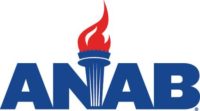ARLINGTON, TX - A new interoperability standard for dimensional metrology has been approved as an American National Standard. Through the auspices of the Dimensional Metrology Standard Consortium’s (DMSC) DMIS Standards Committee (DSC), an updated Dimensional Measuring Interface Standard (DMIS) version 5.2 has been approved. DMIS 5.2 represents a comprehensive standard that quickly responded to user needs and technology advances.
DMIS 5.2 incorporated more than fifty-five improvement requests and enhancements, most significantly the recent advent of multi-axis scanning with a continuously indexable probe head or as an inspection robot. This new functionality requires that the motion of the sensor not only be controlled by the CMM frame but it also must explicitly control the sensor hardware during both motion and measurements. Furthermore, to ensure successful interoperability, DMIS conformance classes have been defined along with a program for DMIS conformance certification.
Although there are many commercial products based upon DMIS, DMIS is not a commercial software product; it is an American National Standard as well as an ISO Standard. DMIS defines a neutral language for communication between information systems and dimensional measurement equipment (DME), and it is the most widely used standard of its kind in the world today. DMIS can perform as an execution language for measurement part programs as well as provide an exchange format for metrology data such as features, tolerances, motions and measurement results.
DMIS conveys the product and equipment definitions along with the process and reporting information necessary to perform dimensional measurements that employ coordinate metrology. DMIS contains product definitions for nominal features, feature constructions, dimensional and geometric tolerances, functional datums, and part coordinate systems. DMIS also associates and designates the criticality of key characteristics of tolerance(s) with feature(s). It communicates equipment definitions for various measurement sensors, measurement resources, and machine parameters. DMIS instructs the DME and/or sensor's motions and touch probing or scanning measurements for product acceptance or verification and for manufacturing process validation and control. Furthermore, DMIS guides the analysis of coordinate data to report and tag measurement results that ascertain product/process quality.
Also, DMIS addresses the associativity of DMIS product definition entities with CAD information. Finally, to aid in its implementation, application functional subsets of DMIS have been defined that ensure successful interoperability and to validate DMIS conformance.
The DMIS is the first data interoperability protocol standard created specifically for dimensional metrology. DMIS applications are multi-facetted. DMIS is full featured and has many successful implementations. It also has a strong reputation as a progressive standard, one that has been responsive to user needs and technology advances. Again, It is maintained and improved upon by a volunteer committee, the DMIS Standards Committee (DSC), under the auspices of the Dimensional Metrology Standards Consortium (DMSC) Inc.
DMIS has progressed as its eighth version and its sixth as a national and/or international standard.
Mechanisms for change to the DMIS standard include active participation in the DMSC as a supporting consortium member, volunteering as a DMIS Standard Committee (DSC) member, and/or the submission of Standard Improvement Requests (SIR).
Get our new eMagazine delivered to your inbox every month.
Stay in the know with Quality’s comprehensive coverage of the manufacturing and metrology industries.
SIGN UP TODAY!Copyright ©2024. All Rights Reserved BNP Media.
Design, CMS, Hosting & Web Development :: ePublishing


